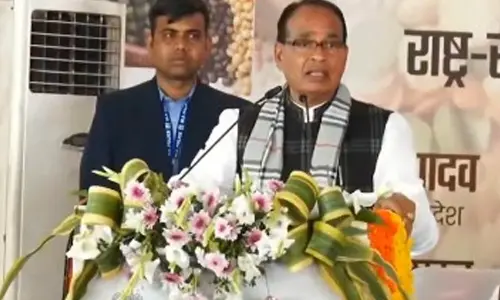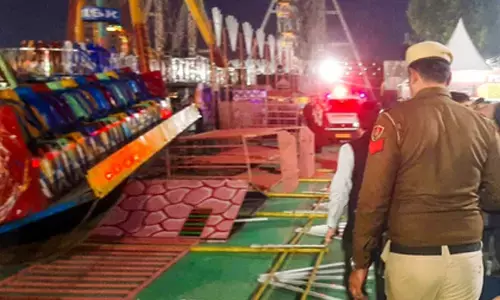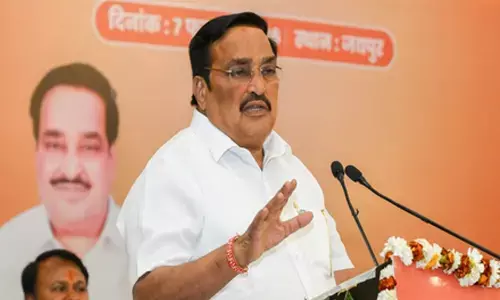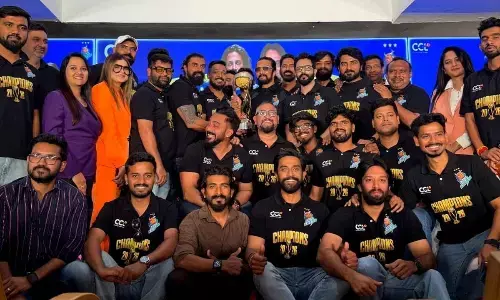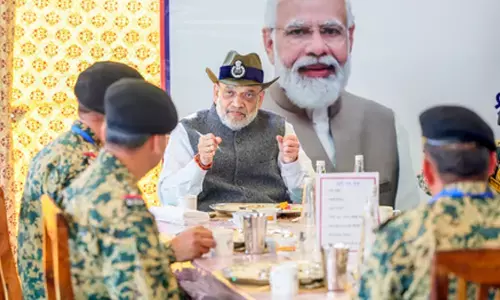Two Manifestos on transparency : Cong stands by RTI, BJP silent
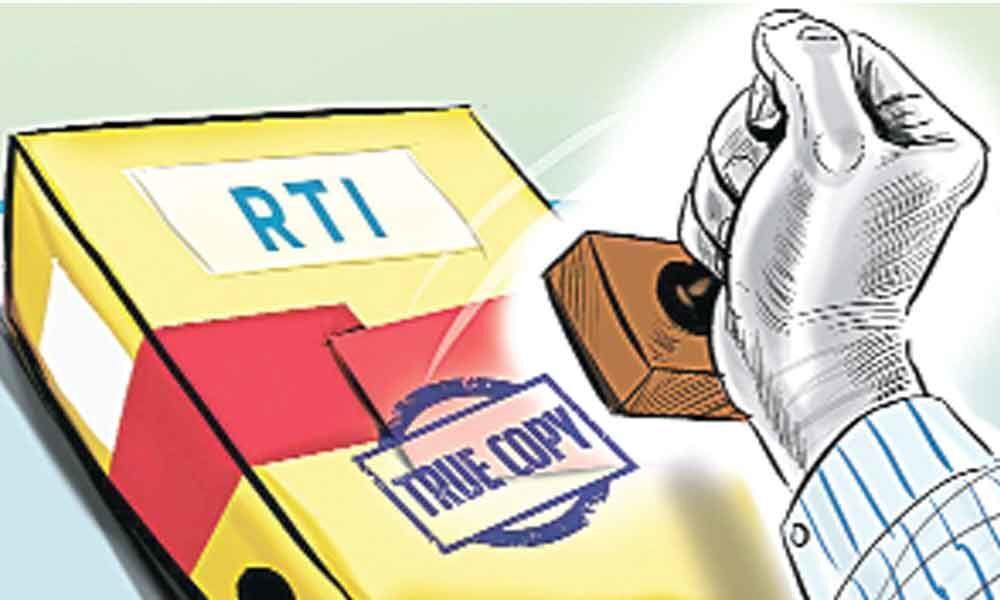
Does BJP believe in transparency & RTI? What is their promise to people on their vital right to know?
Does BJP believe in transparency & RTI? What is their promise to people on their vital right to know? Congress specifically promised to strengthen the RTI Act, assuring it would 'review the RTI Act, omit provisions that may have diluted the Act, add provisions to strengthen it'.
It promised 'to strengthen RTI Act' and to appoint 'qualified persons from the different sections of the society as ICs, in accordance with letter and spirit of the Act'. The ruling party, BJP maintained stoic 'silence' on this vital subject and offered no vision in its vision document 'Sankalp Patra 2019'.
The full bench of the Central Information Commission gave a historic verdict in 2013 declaring BJP, Congress and 4 major political parties as public authorities to make them answerable under RTI Act.
The UPA-II Government attempted to amend the RTI Act to specifically to exclude the political parties from public authorities. Later Rahul Gandhi tore off the Bill papers and assured that it would not bring such amendment. But there is no positive move from Congress to implement RTI within that party.
Four other parties also did not want to answer RTI requests. Having declared political parties as public authorities the CIC failed to allot it to ICs as a subject for hearing the complaints, which are pending for more than six years.
Bureaucratisation of CIC
The UPA had appointed a greater number of non-bureaucratic members in CIC. The first Chief Information Commissioner, Wazahat Habibullah fought with the DoPT, the nodal agency for implementing the RTI law, on the issue of file-notings and won the battle ultimately compelling the DoPT to remove document from its website that prohibited disclosure of file notings.
Several Commissioners infused life into RTI by their orders to achieve the objectives of the Act. But the major hurdle in implementation of RTI Act was attitude that non-disclosure was essential for governance. They believe that non-bureaucrat-Commissioners direct disclosure because they do not know 'administration'.
Under the NDA Government, Babus initiated several steps to dilute the RTI Act. Vacancies were never filled until PILs are filed. Only bureaucrats were selected ignoring other fields prescribed by RTI Act.
First assault - Bad Rules: In 2017-18 the DoPT made a brazen attempt with draft RTI Rules to control internal functioning of CIC! The CIC was asked to offer its views not before but after DoPT has placed draft Rules for consultation of the people.
One of the mischievous Rules gives enormous powers to Chief to remove or add subjects of individual Commissioner. This author with the support of another Commissioner opposed it in several CIC meetings. Draft Rules were resisted so strongly by the people and media that DoPT had shelved this permanently.
Second assault – Bill to Amend: Second attempt is the RTI (Amendment) Bill 2018, to create uncertainty of ICs tenure. The original Act gave ICs a fixed tenure of 5 years or up to age of 65 years whichever is earlier and placed them equal to Election Commissioners, who in turn are on par with Supreme Court Judges.
Bill makes the terms, status and salary of the ICs as prescribed by the Central Government. "As prescribed" means Government can change the status at every recruitment notification. They told resisting Commissioners that sitting ICs would not be affected; new rules were only for future Commissioners. Though the bill is deferred, the threat continues.
Third assault: Babus' Panels to control CIC: The worst attempt revealed in April first week was to set up two panels of top bureaucrats, one to receive complaints against Chief and the second -the ICs.
The panel of Cabinet Secretary, Secretary DoPT, and former Chief Information Commissioner, will consider complaints against the working Chief Information Commissioner, while second panel of Secretary (Coordination) at Cabinet Secretariat, Secretary DoPT and former IC will probe complaints against ICs.
The CIC and IC, now, are above the rank of cabinet secretary. The Act enable ICs to issue directions to cabinet secretary or secretary DOPT, and to consider these officers as deemed PIOs if they obstructed disclosure to penalise them.
How could Cabinet Secretary and Secretary DoPT be empowered to hear complaints against IC, unless dilute RTI Act further? If that is done it will reduce CIC into a glorified clerk without any glory.
If these panels come into existence, not just the independence, but existence of CIC itself would be threatened, the life of Chief will be pathetic, and ICs will be waiting for instructions of those officers, instead of adjudicating complaints against.
Key Ministries with Chief Only: So far, the Chief posts are given only to a former bureaucrat and a convention is created that Chief alone would hear second appeals against PMO, Rashtrapathi Bhawan and key Ministries like Finance Ministry etc.
The Chief would allocate the subjects of the other Commissioners. Bureaucratisation of CIC will be a disaster for transparency.
Mr Amit Shah, the president of BJP claimed that NDA gave transparent and strong decisive government.
The manifesto proclaimed that every effort has been made to re-establish probity in public life, introduce transparency in policy making and in the management of national assets as well as to bring offenders to book.
At another place, Manifesto says transparent economy was given and it says: we will continue to crackdown on Benami properties. It mentions about good governance and corruption-mukth-Bharath, but nowhere a specific assurance not to kill RTI is given. Even in its 75 milestones there is nothing on RTI.
Most of the promises of BJP in 2014 and 2019 are same. Can we believe any party which deliberately did not give any specific promise to secure access to public information? Are we heading towards RTI-mukth-Bharath?
Punish Manifesto Failures
BJP repeated several of its old promises in present manifesto. Having ruled for five years with full majority and weak opposition, repeating old promises mean that nothing was done.
The Election Commission must take note of repetition of promises, and say perhaps, you cannot make same promise more than two times! Voters should ask for a law to impose certain sanctions on political parties, who failed to implement their manifesto.
There shall be a legal duty on political parties to inform the people with proofs as to which promise was implemented, to what extent, and if failed, the reasons for the same.
The parties must file affidavits about their failure to implement their own manifesto, which shall be accessible to all. There shall be deterring legal consequences for such failures.
(The writer is former Central Information Commissioner and Professor of Law, at Bennett University, Greater Noida)










